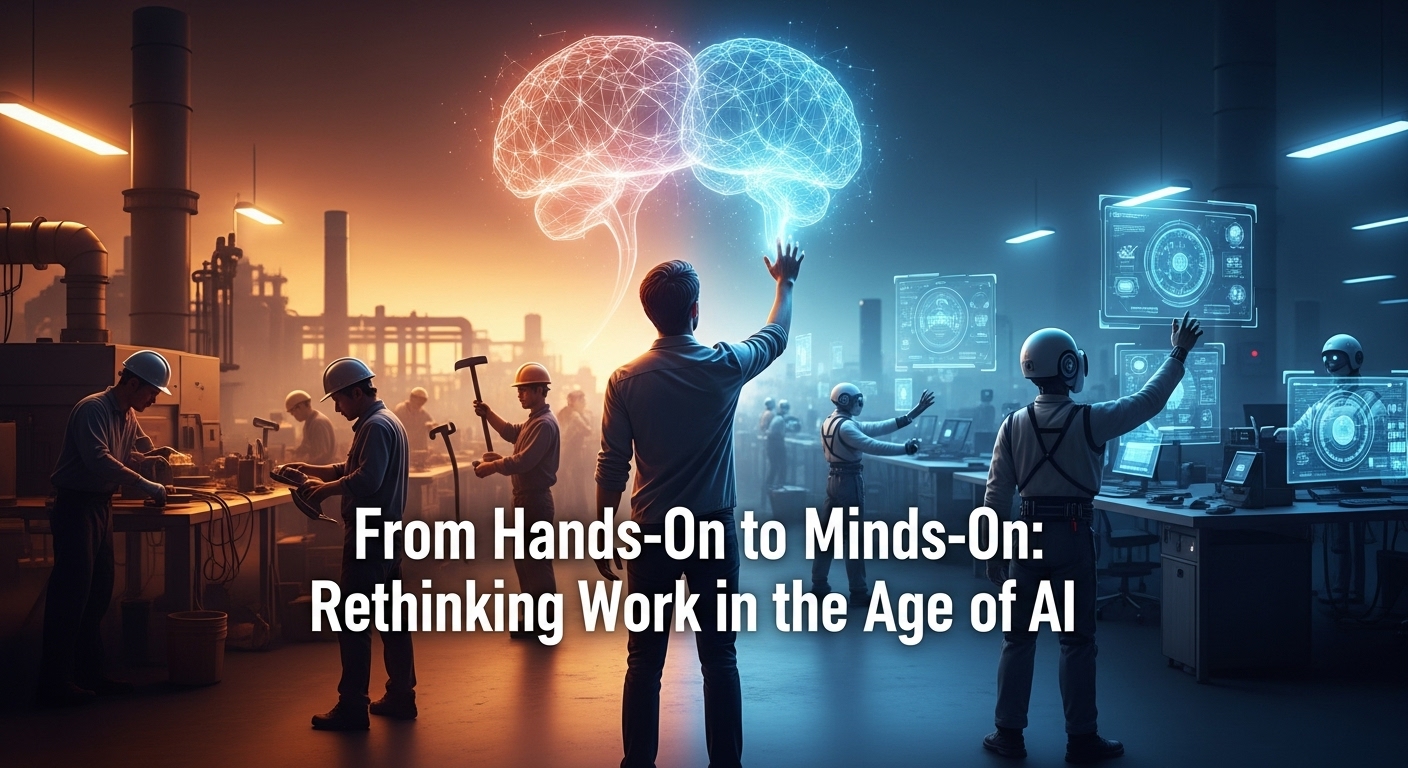For centuries, “work” meant rolling up your sleeves and getting things done yourself. Whether it was plowing fields, building railroads, or crunching spreadsheets, your value came from how well you could do.
But something significant is happening.
We are moving into a world where your value may come less from doing the work directly and more from teaching, guiding, and shaping how the work gets done, often by machines.
In other words, the future of work is not about typing the report; it is about showing a system what a great report looks like and helping it learn to create one again and again.
Why This Shift Is Happening
Technology has always redefined what “productive” means.
Factories multiplied human muscle. Computers amplified human memory.
Now, AI is amplifying human judgment and know-how.
The tools are changing, but the question remains the same: What makes human work valuable?
The answer is shifting from output to oversight, from execution to instruction.
When machines can draft, calculate, and automate at scale, the bottleneck moves. What matters most now is how well we set them up to succeed. Instead of manually sending the same email 500 times, your role might be to train an AI on your tone, strategy, and desired outcomes so it can send those 500 emails better and faster than you ever could.
That represents a massive redefinition of work: from repeating tasks endlessly to encoding them once in a way that machines can carry forward.
What “Teaching the Work” Looks Like in Real Life
Across industries, we are already seeing the early outlines of this shift, where humans become the trainers rather than the task-doers.
- Customer service: Instead of answering every inquiry, workers create playbooks and examples that teach chatbots how to respond empathetically and accurately.
- Healthcare: Doctors spend more time validating AI-assisted diagnoses and teaching systems what a correct judgment looks like while spending less time filling out forms.
- Education: Teachers design learning environments and rubrics so AI tutors can personalize lessons for every student.
- Creative fields: Writers, designers, and musicians teach AI their style, values, and standards, then curate and refine outputs rather than starting from scratch.
In each case, humans step into the role of coach, evaluator, and architect, rather than the sole executor.
What Skills Will Matter Most
As AI takes over routine execution, the most valuable skills will be the ones that help teach systems and shape outcomes.
These are not only technical; they are cognitive, creative, and ethical.
- Critical judgment: spotting what is right, what is wrong, and why.
- Communication: articulating standards clearly so machines and other humans can learn from them.
- Creativity: designing new workflows, prompts, and frameworks where none exist yet.
- Empathy and ethics: deciding what “good” actually means in contexts that affect real lives.
These are deeply human abilities, which is exactly why they will matter even more in a machine-driven economy.
Why This Is Good News
People understandably worry that AI will take jobs. And yes, many tasks will be automated away.
But history tells us that every technological leap creates new roles we could not have imagined before.
This time, the new roles will look less like labor and more like mentorship for both people and machines.
That is not something to fear; it is something to embrace. It is a chance to elevate ourselves from endless repetition to higher-level thinking, from “get it done” to “here is how it is done.”
Closing Thought
The phrase “future of work” gets thrown around a lot, but here is the simplest way to think about it:
Yesterday: work meant doing.
Today: work means doing with help.
Tomorrow: work will mean teaching — showing systems and other humans how to carry our knowledge forward.
The age of AI does not diminish us. It invites us to become wiser teachers of our own intelligence.
From hands-on to minds-on, that is where we are headed.


